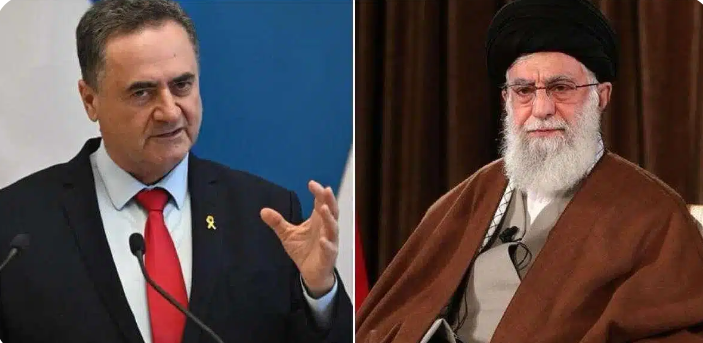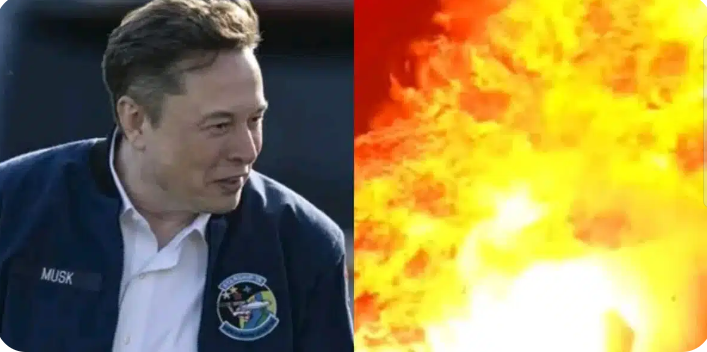
“He Can No Longer Be Allowed to Exist”: Israeli Defence Minister Issues Chilling Warning Against Iran’s Supreme Leader After Deadly Hospital Strike

In an escalation that sent shockwaves across the international community, Israel’s Defence Minister, Israel Katz, delivered a stark and incendiary warning to Iran, declaring that the country’s Supreme Leader, Ayatollah Ali Khamenei, “can no longer be allowed to exist.” The chilling statement came hours after a missile—reportedly of Iranian origin—slammed into Soroka Hospital in Beersheba, southern Israel, reducing several wards to rubble, injuring at least 40, and sending a clear message that the Israel-Iran conflict may have entered a new, darker phase.
The missile strike, which took place on Thursday, has plunged Israel’s political and military establishment into what many are calling “wartime footing.” According to early reports, the hospital’s surgical unit had just been evacuated minutes before impact, averting what could have been an even greater loss of life. Yet the devastation remains widespread, with broken ceilings, shattered windows, and collapsed structures across the medical center. Flames tore through the hospital compound shortly after the impact, and emergency crews battled for hours to bring it under control.
Iranian authorities claimed the missile was not intended for a civilian target. In a brief statement released through state media, Iran’s Revolutionary Guard said the target was a “military and intelligence facility” that was allegedly using “civilian infrastructure as cover.” But Israeli officials say that claim is nothing more than a cynical cover-up for what they now describe as a war crime. Defence Minister Katz did not mince words during his press briefing. “This man, Khamenei, gives direct orders to attack hospitals,” he said. “He has openly declared that he wants Israel destroyed. He considers the destruction of the state of Israel to be a goal. Such a man can no longer be allowed to exist.”
The gravity of the moment was not lost on Prime Minister Benjamin Netanyahu either. Appearing in a separate briefing, a visibly angered Netanyahu condemned the strike and issued a stark warning of his own: “Iran will pay a heavy price for this unprovoked and despicable act of aggression. Targeting civilians and healthcare infrastructure is a red line. We will defend our citizens with everything we have.”
Soroka Hospital’s director, Dr. Shlomi Codish, gave a grim account of the destruction. “Several wards were completely demolished, and there is extensive damage across the entire hospital. We are still accounting for staff and patients. The surgical unit had just been cleared for unrelated repairs—that likely saved lives. But what we’re looking at now is unprecedented,” he said. Codish’s voice, weary and emotional, reflected a country grappling with shock and fury.
While no fatalities have been officially confirmed at the time of reporting, the number of injured continues to climb. Health officials said several patients were caught in the blast’s shockwave and are undergoing emergency treatment. Images from the site showed bloodied hospital gowns, overturned beds, and surgical tools scattered amidst the wreckage. Firefighters, paramedics, and IDF soldiers worked side by side in the chaos, pulling people from debris and attempting to maintain order as panic spread.
Reactions across the globe have been swift. The United Nations Secretary-General António Guterres called for “immediate restraint” from both sides and emphasized that hospitals must never become targets in any conflict. The U.S. State Department condemned the attack “in the strongest possible terms” while reaffirming its “ironclad commitment to Israel’s security.” Meanwhile, Iran’s foreign ministry released a curt denial of any deliberate attack on civilians, calling the accusations “Zionist fabrications” and warning Israel against further retaliation.
But for many Israelis, the time for diplomacy has passed. Across the country, protests erupted within hours of the announcement, with thousands taking to the streets in Jerusalem and Tel Aviv, demanding swift and decisive retaliation. Several placards bore images of Ayatollah Khamenei with red X marks across his face, alongside slogans like “Enough Is Enough” and “Never Again Means Now.”
For years, tensions between Israel and Iran have simmered, occasionally boiling over into proxy confrontations in Syria, Lebanon, and the Gaza Strip. But Thursday’s strike represents a jarring escalation—one that may prove impossible to walk back. Israel has long accused Iran of funding and arming militant groups such as Hezbollah and Islamic Jihad, and the two countries have been engaged in a covert shadow war of assassinations, cyberattacks, and sabotage. Yet this direct missile strike on a major civilian hospital pushes the limits of even those unofficial rules of engagement.
Security analysts now warn of the real possibility of open conflict. “This was not just a provocation,” said Col. Avi Dagan, a retired Israeli intelligence officer. “It’s an act of war. The rhetoric from Katz is unprecedented in modern Israeli history. When a senior government official says a foreign leader 'can no longer be allowed to exist,' that signals something bigger is coming.”
Indeed, military activity has already ramped up in southern Israel. Air defense systems have been placed on high alert, and large troop movements have been reported near the borders of Gaza and Lebanon. Rumors of an emergency cabinet meeting have been confirmed by government insiders, though its contents remain classified.
Back at Soroka Hospital, the cleanup has barely begun. Families have gathered outside the ruins, searching for loved ones and praying for those still inside. Hospital staff, many of whom risked their lives to shield patients from debris, are being hailed as heroes. Yet the trauma is evident in their eyes. “I never thought I would see something like this,” said Miriam Elbaz, a senior nurse who was on duty during the attack. “A hospital is supposed to be a place of healing. But yesterday, it became a war zone.”
As the sun sets over Beersheba, the fires may be extinguished, but the fury they’ve ignited is only just beginning to burn. One thing is certain: the landscape of the Middle East has shifted. And with a chilling declaration echoing from Israel’s halls of power—“Khamenei can no longer be allowed to exist”—the world holds its breath for what comes next.


